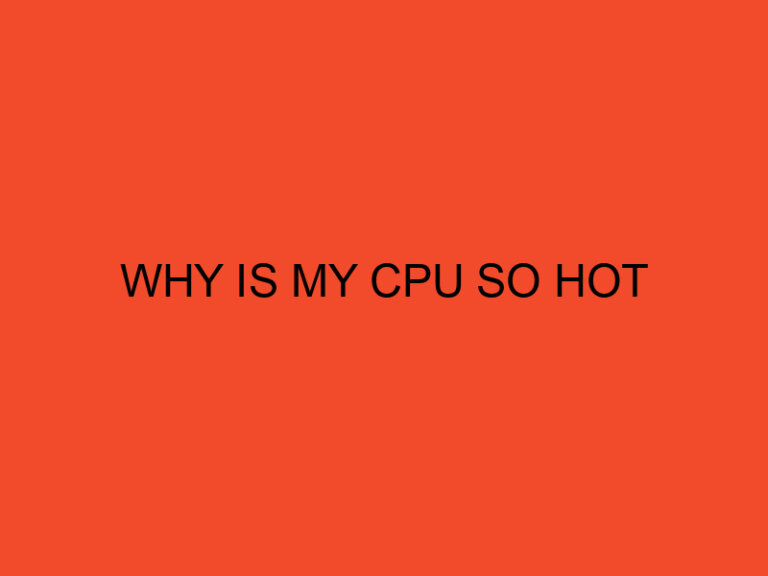In the realm of technology, virtual assistants have become increasingly prevalent, revolutionizing the way we interact with our devices. Behind the scenes of these intelligent virtual beings lies a critical component known as a processor. In this article, we will delve into the world of processors, exploring what they are and the vital role they play in a virtual assistant’s computer.
Table of Contents
- The Emergence of Virtual Assistants
- Understanding Processors
- The Role of Processors in a Virtual Assistant’s Computer
- Processor Architecture: Unveiling the Core Components
- Clock Speed and Performance
- Multitasking Capabilities
- Power Efficiency and Thermal Management
- Overclocking: Pushing the Boundaries of Performance
- The Impact of Processors on Virtual Assistant Performance
- Future Trends in Processor Development
- Conclusion
- FAQs
- Can I upgrade the processor in my virtual assistant device?
- How does the processor affect the response time of a virtual assistant?
- Are there any processors specifically designed for virtual assistants?
- Does overclocking the processor improve a virtual assistant’s performance?
- What advancements can we expect in future virtual assistant processors?
The Emergence of Virtual Assistants
Virtual assistants have gained immense popularity in recent years, providing users with personalized assistance and streamlining various tasks. These intelligent software programs employ artificial intelligence (AI) algorithms to understand natural language commands and perform a wide range of functions. However, their seamless performance and responsiveness are reliant on the underlying hardware components, with the processor taking center stage.
Understanding Processors
Processors, often referred to as central processing units (CPUs), are the brain of any computer system. They are responsible for executing instructions, performing calculations, and managing data flow within the system. In the case of virtual assistants, processors play a crucial role in ensuring smooth and efficient operation.
The Role of Processors in a Virtual Assistant’s Computer
In a virtual assistant’s computer, the processor handles numerous tasks simultaneously. From interpreting voice commands to executing complex algorithms, the processor enables the virtual assistant to perform its functions effectively. Let’s explore some key aspects of processor functionality in this context.
Processor Architecture: Unveiling the Core Components
Processors comprise various components that work in tandem to execute instructions. These include the control unit, arithmetic logic unit (ALU), cache memory, and registers. The control unit coordinates the flow of data and instructions, while the ALU performs arithmetic and logical operations. Cache memory helps in speeding up data access, and registers store intermediate values during processing.
Clock Speed and Performance
Clock speed, measured in gigahertz (GHz), indicates the number of cycles a processor can execute per second. A higher clock speed generally translates to faster processing. Virtual assistants benefit from processors with higher clock speeds, as they can quickly analyze and respond to user commands, resulting in a more seamless user experience.
Multitasking Capabilities
Virtual assistants often handle multiple tasks simultaneously, such as playing music while searching the internet or answering questions. Processors with multiple cores, such as dual-core or quad-core processors, excel at multitasking. These cores work in parallel, allowing the virtual assistant to handle different tasks efficiently.
Power Efficiency and Thermal Management
As virtual assistants are commonly deployed on mobile devices and smart speakers, power efficiency is crucial. Processors designed for these devices optimize power consumption, extending battery life and reducing heat generation. Efficient thermal management ensures that the processor remains within safe operating temperatures, preventing performance degradation or hardware damage.
Overclocking: Pushing the Boundaries of Performance
Overclocking refers to increasing the clock speed of a processor beyond its factory-set limits to achieve higher performance. While this can enhance a virtual assistant’s processing power, it also comes with potential risks. Overclocking may lead to increased power consumption, heat generation, and reduced hardware lifespan if not done properly.
The Impact of Processors on Virtual Assistant Performance
The choice of processor significantly influences the overall performance of a virtual assistant. A powerful processor ensures quick response times, smooth multitasking, and efficient execution of complex algorithms. Virtual assistant developers prioritize processors with high processing power and AI capabilities to deliver an optimal user experience.
Future Trends in Processor Development
As technology continues to evolve, processor development follows suit. Future processors for virtual assistants are expected to exhibit enhanced AI capabilities, enabling more advanced natural language processing and contextual understanding. Additionally, there will be a focus on power efficiency and thermal management to support the growing demand for portable virtual assistant devices.
Conclusion
Processors are the unsung heroes in the realm of virtual assistants, powering their intelligence and performance. They handle a myriad of tasks, from understanding and executing voice commands to ensuring seamless multitasking capabilities. As technology advances, processors will continue to play a vital role in the evolution of virtual assistant devices, bringing us ever closer to a more interconnected and intelligent world.
FAQs
Can I upgrade the processor in my virtual assistant device?
Currently, most virtual assistant devices have non-upgradable processors, as they are tightly integrated into the hardware design. It is advisable to choose a device with a powerful processor that meets your requirements from the outset.
How does the processor affect the response time of a virtual assistant?
The processor’s processing power and clock speed directly impact the response time of a virtual assistant. A faster processor can quickly analyze commands and generate responses, leading to shorter response times.
Are there any processors specifically designed for virtual assistants?
While there are no processors exclusively designed for virtual assistants, processors with high processing power and AI capabilities are preferred for optimal virtual assistant performance.
Does overclocking the processor improve a virtual assistant’s performance?
Overclocking can potentially enhance a virtual assistant’s performance by increasing the processor’s clock speed. However, it should be approached with caution, as improper overclocking can lead to stability issues and reduced hardware lifespan.
What advancements can we expect in future virtual assistant processors?
Future virtual assistant processors are likely to exhibit improved AI capabilities, enabling more advanced natural language processing and contextual understanding. Power efficiency and thermal management will also be key focus areas to support portable virtual assistant devices.





